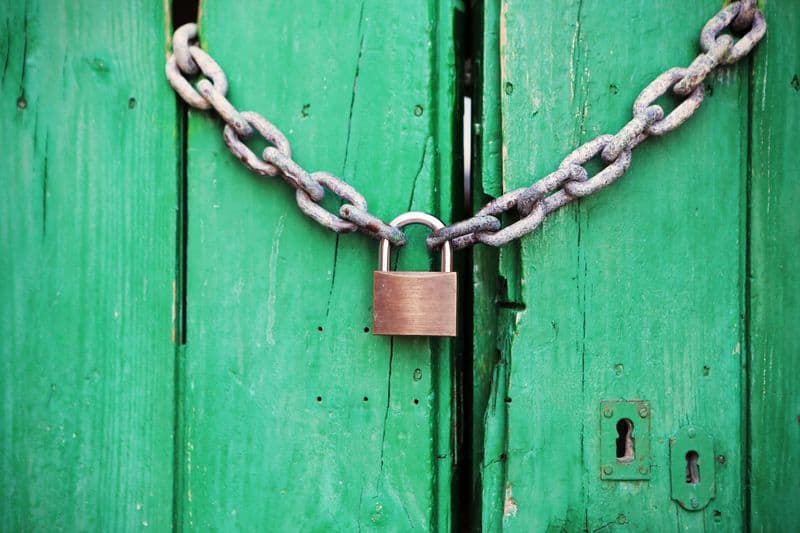Growing up feeling left out or unwanted can leave lasting marks on our adult lives. When playmates didn’t include you or family overlooked your presence, these experiences shaped how you see yourself and others today.
Understanding these childhood wounds can help explain current struggles with relationships, self-worth, and emotional well-being.
1. You Apologize Constantly for Taking Up Space
“Sorry” slips out of your mouth automatically, even when you’ve done nothing wrong. You apologize for speaking in meetings, for asking questions, or for simply being visible in social settings.
This habit formed when you learned that your presence seemed to bother others during childhood. Being excluded taught you that something about your very existence needed justification.
Adults who experienced childhood exclusion often develop this reflexive apology habit as a preemptive defense against potential rejection. It’s an unconscious strategy to make yourself smaller and less likely to face the pain of being pushed aside again.
2. Rejection Feels Catastrophic Rather Than Disappointing
Minor rejections hit you with overwhelming force. A canceled plan or unanswered text message triggers a flood of painful emotions that seems disproportionate to others.
Your nervous system remains primed from those early experiences when being excluded wasn’t just disappointing—it threatened your sense of belonging and safety. Each new rejection reactivates that old wound.
Unlike people with secure childhood attachments who can bounce back from social disappointments, your brain processes rejection as danger. This heightened sensitivity isn’t weakness but a logical response to your history of being repeatedly left out.
3. You Read Between Lines That Aren’t There
Casual conversations become mental obstacle courses as you analyze every word, tone, and gesture for hidden meanings. You’re convinced someone’s neutral comment contains secret criticism or that a friend’s busy schedule means they’re avoiding you.
This hypervigilance developed as a survival skill. As an excluded child, you needed to anticipate rejection before it happened to protect yourself emotionally.
Your brain became expert at spotting subtle signs of potential exclusion, but now overworks by finding threats in harmless interactions. This exhausting mental habit makes relaxed social connections difficult, as you’re constantly scanning for evidence you’re unwanted.
4. Success Feels Uncomfortable and Temporary
Achievement brings anxiety rather than satisfaction. When praised or recognized, you feel like an impostor waiting to be discovered as undeserving.
Children who experience exclusion often internalize the message that they’re fundamentally inadequate. This creates a disconnect between external success and internal self-image that persists into adulthood.
Even with impressive accomplishments, you struggle to shake the feeling that you don’t truly belong in successful circles. This impostor syndrome isn’t just insecurity—it’s the lingering echo of being the kid who wasn’t good enough to include in the group.
5. You Become Whoever Others Need You To Be
Your personality shifts depending on who you’re with, like a social chameleon adapting to each environment. You’ve mastered reading rooms and becoming the version of yourself most likely to gain acceptance.
This adaptability isn’t natural flexibility—it’s a survival mechanism. As an excluded child, you learned that your authentic self wasn’t enough to secure inclusion.
The constant shape-shifting leaves you questioning who you really are beneath these personas. While others admire your ability to fit in anywhere, they don’t see the exhaustion of maintaining these masks or the emptiness of being liked for someone you’re pretending to be.
6. You Overcommit to Avoid Abandonment
Friends marvel at your reliability and willingness to help, never realizing it stems from fear rather than generosity. You exhaust yourself meeting others’ needs while neglecting your own.
This pattern emerged when you discovered that making yourself useful sometimes prevented exclusion. The excluded child learned that functional value could substitute for intrinsic worth.
As an adult, you still believe relationships depend on what you provide rather than who you are. This creates unbalanced connections where you give excessively while accepting minimal emotional return, perpetuating the childhood dynamic of working desperately to earn inclusion.
7. Conflict Makes You Panic or Shut Down
Disagreements that others handle calmly send you into fight-or-flight mode. Your heart races, thoughts scatter, and you either become defensive or completely withdraw from the situation.
For the excluded child, conflict often preceded rejection. Your nervous system learned to associate disagreement with the devastating experience of being pushed out of the group.
This physiological overreaction isn’t something you can simply reason away. Your body responds to present-day conflicts as though they threaten your survival because, emotionally speaking, childhood exclusion felt exactly that dangerous to your developing brain.
8. You’re Hyperaware of Group Dynamics
Walking into a room, you immediately notice who’s talking to whom, who seems central to the group, and where the invisible boundaries lie. This awareness operates automatically, like background software always running.
This heightened perception developed when monitoring social patterns was crucial for avoiding painful exclusion. The excluded child becomes expert at reading social hierarchies as a defense mechanism.
While this sensitivity can become a valuable skill in certain professions, it comes at a cost. Social gatherings rarely feel relaxing because you’re constantly processing complex information about group dynamics that others don’t notice or need to track.
9. You Struggle to Feel Genuinely Known
Despite having relationships, a persistent loneliness follows you. Even surrounded by friends or family, you feel fundamentally unseen and misunderstood.
Childhood exclusion created a disconnect between your authentic self and your social self. The parts you had to hide or change to avoid rejection became sealed off, creating an internal division that persists in adulthood.
This emotional isolation isn’t resolved by simply having more relationships. The core loneliness stems from the sense that people connect with your adapted persona rather than your true self—a self you may struggle to recognize after years of necessary adaptation.
10. You Rehearse Social Interactions Before They Happen
Simple conversations require extensive mental preparation. You script potential dialogues, anticipate responses, and plan comebacks for imagined scenarios before making a phone call or attending a gathering.
This exhausting mental rehearsal stems from childhood experiences where social missteps led to painful exclusion. The stakes felt impossibly high when every interaction could determine whether you belonged.
While some preparation is normal, your level of social planning goes beyond typical consideration into protective hypervigilance. This constant rehearsal drains the spontaneity and joy from interactions, turning social life into a performance where relaxation feels dangerous.











